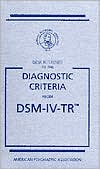Single-Case Research Designs: Methods for Clinical and Applied Settings
Single-case research has played an important role in developing and evaluating interventions that are designed to alter a particular facet of human functioning. Now thoroughly updated in its second edition, acclaimed author Alan E. Kazdin's Single-Case Research Designs provides a notable contrast to the quantitative methodology approach that pervades the biological and social sciences. While focusing on widely applicable methodologies for evaluating interventions--such as treatment or...
Search in google:
Single-case research has played an important role in developing and evaluating interventions that are designed to alter a particular facet of human functioning. Now thoroughly updated in its second edition, acclaimed author Alan E. Kazdin's Single-Case Research Designs provides a notable contrast to the quantitative methodology approach that pervades the biological and social sciences. While focusing on widely applicable methodologies for evaluating interventions--such as treatment or psychotherapy using applied behavior analysis--this revised edition also encompasses a broader range of research areas that utilize single-case designs, demonstrating the pertinence of this methodology in various disciplines, from psychology and medicine to business and industry.This well-written, clear, and thoroughly updated text is ideal for practitioners, instructors, and students alike.
Contents INTRODUCTION AND OVERVIEW1. Introduction: Study of the Individual in Context2. Underpinnings of Scientific Research ASSESSMENT3. Background and Key Measurement Considerations4. Methods of Assessment5. Ensuring the Quality of Measurement EXPERIMENTAL DESIGNS6. Introduction to Single-Case Research and ABAB Designs7. Multiple-Baseline Designs8. Changing-Criterion Designs9. Multiple-Treatment Designs10. Additional Design Options11. Quasi-Single-Case Experimental Designs EVALUATING SINGLE-CASE DATA12. Data Evaluation13. Graphic Display of Data for Visual Inspection PERSPECTIVES AND CONTRIBUTIONS OF THE DESIGNS14. Evaluation of Single-Case Designs: Challenges and Limitations15. Summing Up: Single-Case Research in Perspective Appendix. Statistical Analyses for Single-Case Designs: Issues and Illustrations References Author Index Subject Index
\ From the PublisherKazdin's book as written is readable and concise; Kazdin concisely tells the bewildered graduate student exactly what s/he needs to know to conduct single-case research. The book is full of examples that elucidate the text, and it's highly readable. However, it does need updating for the reasons that Kazdin outlined. I am excited about the possibility of having a revised book available. This is a wonderful project, and I look forward to the finished project. I think I can say that I am certain (9-10 on a scale of 10) to adopt this book for my masters' students pursuing their theses.\ -M.G. Lancaster, Professor of Counseling and Special Education, Midwestern State University\ Many of my students ask me why I require a book published in 1982. My reply has been that it is an excellent book and covers the issues well. What was true in 1982 is still true in 2006 and the content is worth the use of the book. With an updated version, this revision will use the 1982 text as a base for an expansion and updating that is very relevant, and I expect that this 2nd edition will be an excellent contribution, well written and informative. I will certainly adopt the revised book as a required text (10 on a scale of 10).\ -Trevor F. Stokes, Florida Mental Health Institute, University of South Florida\ The main strengths of the Kazdin text are its clarity, its simplicity, and its organization. I believe Kazdin is a gifted writer; I find his style to be concise and to the point. He provides superb examples for the points he makes. I would adopt this book in a 'heartbeat'!\ -James Halle, Department of Special Education, University of Illinois\ I have been using Kazdin's single-case research design book for this course since I started teaching it in Fall 1999. I would rate the book a 9 on a ten-point scale for satisfaction. Kazdin's book has a lot of strengths. Its contents are comprehensive and its writing is clear and organized. The book can be a self-study material because it is so self-explanatory and the case examples are helpful for understanding various methods. Although the book has not been revised since its first edition in 1982, the book is still widely used today because the contents are still strong and applicable. I will definitely adopt the revised book with the proposed changes (10 on a ten-point scale).\ -Y. Barry Chung, Counseling & Psychological Services, Georgia State University\ "As in Kazdin's other work, the information presented in Single-Case Research\ Designs is accessible to a wide audience from diverse training backgrounds. Readers are likely to feel inspired to let their own scientistpractitioner emerge to answer questions important for their clients, their practice, and their community."--Lisa Fitzgibbons, American Psychological Association\ \ \








